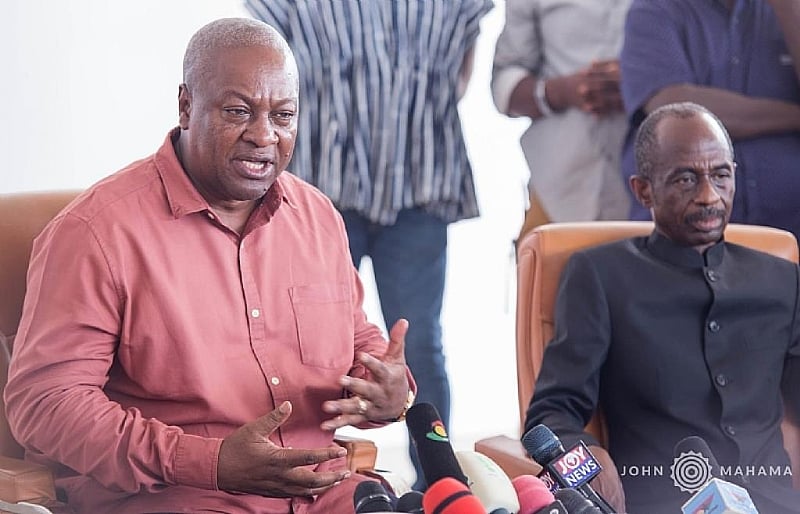The National Chairman of the National Democratic Congress (NDC), Johnson Asiedu Nketia, disclosed that President John Dramani Mahama faced significant pressure to appoint an extensive cabinet exceeding 60 ministers following the NDC’s victory in the 2024 elections. This pressure emanated from within the party, with various factions advocating for the inclusion of their preferred candidates in ministerial positions. Mr. Nketia, a known critic of large government cabinets, highlighted the financial burden such appointments place on the national budget, arguing that the resources allocated to ministerial portfolios could be better utilized for developmental projects and social programs. President Mahama, however, stood firm against these internal pressures, maintaining his commitment to a streamlined government structure.
Asiedu Nketia, a staunch advocate for fiscal prudence, expressed his strong opposition to the bloated cabinet size of the previous administration led by Nana Akufo-Addo. He criticized the former president’s decision to appoint over 120 ministers, characterizing it as an egregious waste of public funds. Nketia argued that the exorbitant expenditure associated with maintaining such a large ministerial body was detrimental to the nation’s finances and diverted crucial resources away from essential public services. He emphasized that the cost of supporting a single minister, including salaries, benefits, office expenses, and associated staff, represented a significant financial outlay that could be more effectively utilized to address critical national needs.
Following the NDC’s electoral victory, internal party discussions regarding ministerial appointments were held, with some members pushing for the inclusion of additional ministerial positions. These proponents argued for expanding the cabinet beyond President Mahama’s initial proposal, suggesting the addition of at least five more ministers. However, President Mahama remained resolute in his commitment to a more compact and cost-effective government structure, rejecting calls for an expanded cabinet. He reaffirmed his pledge to the Ghanaian people to maintain a leaner ministerial body, prioritizing efficient governance and responsible use of public funds over political expediency.
Asiedu Nketia underscored the inherent conflict between satisfying individual political ambitions and serving the national interest. He argued that appointing numerous ministers simply to appease various factions within the party would ultimately be detrimental to the country’s development. He pointed to the Akufo-Addo administration’s large cabinet as a cautionary tale, suggesting that the pursuit of political patronage through excessive ministerial appointments contributed to the country’s economic challenges. Nketia maintained that true progress requires prioritizing the nation’s welfare over individual political aspirations, advocating for a lean and efficient government structure focused on delivering tangible results for the citizenry.
The National Chairman further elaborated on the principle of prioritizing national development over individual political ambitions, emphasizing that sacrifices are necessary to achieve sustainable progress. He argued that a leaner government structure, while potentially disappointing some individuals seeking ministerial positions, ultimately benefits the nation by reducing unnecessary expenditure and promoting efficient resource allocation. He reiterated his commitment to fiscal responsibility and his belief that a smaller, more focused cabinet is essential for effective governance and sustainable development.
In essence, Asiedu Nketia’s revelations highlight President Mahama’s commitment to fiscal responsibility and his resolve to prioritize national interests over internal party pressures. His stance reflects a broader debate about the optimal size and structure of government, with proponents of smaller cabinets arguing for greater efficiency and cost-effectiveness, while others advocate for broader representation and the inclusion of diverse perspectives within the ministerial body. This tension between political expediency and fiscal prudence is a recurring theme in governance, and President Mahama’s decision to resist pressure for an expanded cabinet underscores his commitment to a more streamlined and financially responsible approach to governance.














